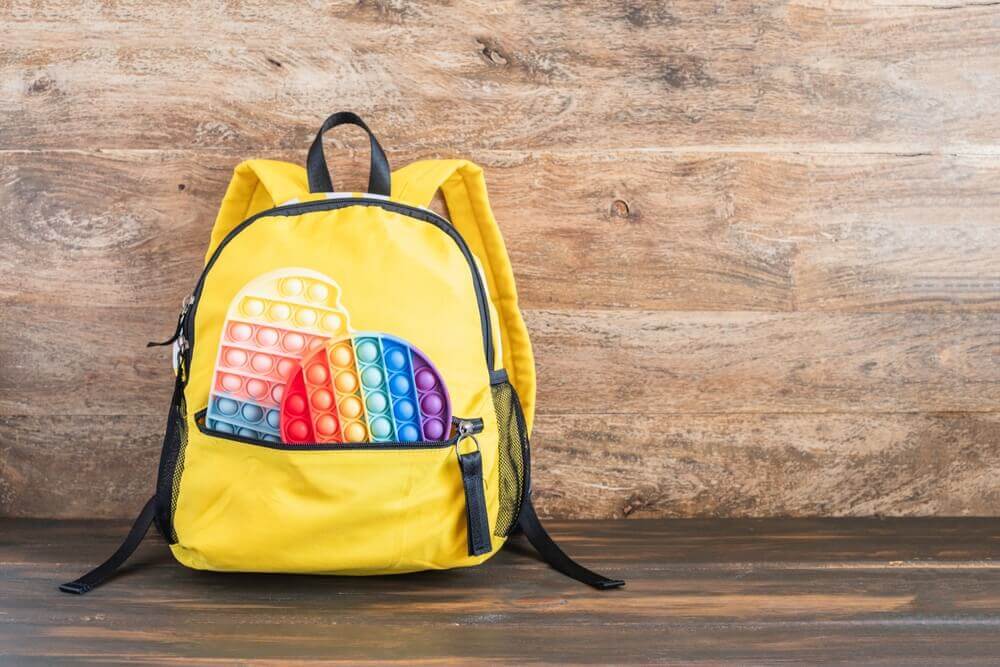When it comes to caring for a child with autism, providing a safe and comfortable environment is of the utmost importance. One way to do this is to create a sensory backpack specifically tailored to the needs of your child. A sensory backpack can help your child regulate their emotions and remain calm in situations where they might otherwise feel overwhelmed.
My World ABA explains the importance of a sensory backpack for autism and how you can use one to maximize your child’s comfort.
Understanding Sensory Needs in Autistic Children
Children on the autism spectrum can experience a wide range of sensory issues that can cause them to feel overwhelmed and uncomfortable in certain situations. Understanding these needs and how they affect your child is crucial to helping them feel comfortable and safe.
It’s important to note that sensory issues can be different for each child. Some may be sensitive to certain sounds, while others may have trouble with touch or smells. For example, the sound of a vacuum cleaner can be deafening to one child, while for another, the feel of a certain fabric on their skin can be unbearable. What may be overwhelming for one child may not bother another.
As parents, you know your child’s triggers and what kind of situations are likely to bother them. Always strive to be proactive to help avoid things that might lead to sensory overload. But above all, have compassion and understanding when your child becomes overwhelmed, and just use it as a learning experience for the next time.
Related Post: Sensory Overload in ASD: What is Sensory Overload and What Can Parents Do To Help?
How Can Sensory Backpacks Help?
Sensory backpacks are designed to help children on the autism spectrum feel more comfortable and secure in different environments. They are also a great tool to help parents prepare for situations that may be overwhelming for their child. Having a sensory backpack on hand can make a huge difference in preventing sensory overload.
A sensory backpack is like a portable sensory room that parents and caregivers can take anywhere. It can contain a variety of items that can help your child feel more comfortable, safe, and calm in different situations. When your child is feeling overwhelmed or overstimulated, they can retreat to the backpack and use the items inside to help them feel better.
Sensory backpacks are especially helpful in situations where your child may be exposed to unfamiliar environments, loud noises, or bright lights. This can include situations like going to the supermarket, attending a crowded event, or taking a long car journey. Having a sensory backpack on hand can help you be prepared for these situations and make them less stressful for your child.
Essential Items for the Sensory Backpack
The key to creating an effective sensory backpack is to fill it with items that your child finds comforting. To get you started, here are some essential items to include in your child’s sensory backpack.
1. Noise-cancelling headphones or earplugs
Loud noises can be overwhelming and distressing for autistic children, so having a way to block out noise can be incredibly helpful.
2. Comfort item
A favorite stuffed animal, blanket, or toy can provide a sense of familiarity and comfort for your child when in unfamiliar or overwhelming situations.
3. Fidget toys
Fidget toys can help your child stay focused and calm by providing tactile stimulation. Items like stress balls, sensory balls, and tangle toys are popular choices.
4. Chewable necklace or bracelet
Some autistic children may chew on non-food items for sensory stimulation. Providing a chewable necklace or bracelet can redirect that behavior to a safe and appropriate item.
5. Snacks and drinks
Hunger and thirst can exacerbate sensory sensitivities, so having familiar snacks and drinks on hand can help your child feel more comfortable and secure.
6. Hat or sunglasses
For kids who are sensitive to bright lights or visuals, having something to cover their eyes can be comforting.
7. Drawing paper or books
If your child gets bored easily, it might be good to keep a drawing pad and Crayons or a favorite book to look at.
Remember that every autistic child is unique and may have different sensory needs. Don’t be afraid to customize your child’s sensory backpack to fit their specific preferences.
Items to Add For Long-Distance Travel With a Child on the Autism Spectrum
While a sensory backpack can be a great help for your child in everyday situations, there are additional items you might want to add if you are planning a longer trip. Depending on the age of your child, the mode of transportation, and the destination, you might need to consider different options.
Here are some suggestions:
1. Weighted Blanket
A weighted blanket can help your child feel grounded and calm in stressful situations. If you are traveling by car, you can easily pack it in the trunk. If you are flying, you might need to check with the airline about their policy on carrying bulky items.
2. Compression Clothing
Compression clothing, such as shirts, shorts, or socks, can provide a calming pressure that some autistic children find soothing. They can be worn under regular clothes and can help your child feel more comfortable in unfamiliar surroundings.
3. Extra Snacks
If your child is picky about what snacks they like, make sure you pack enough to last the entire trip so you aren’t scrambling to find them at a local store.
Remember that traveling with an autistic child presents challenges, but it can also be an opportunity to create meaningful memories. Plan ahead, pack smart, and don’t forget to be kind to yourself and your child along the way.
Related Post: Tips For Helping Your Autistic Child Through a Change in Routine
ABA Therapy for Children and Teens
My World ABA provides ABA therapy in Joplin and Springfield, MO. Our approach is based on kindness and understanding, and we strive to create a fun and inclusive environment where your child will feel welcome.
To learn more about our services or answer additional questions, visit our website or call (417) 818-5784 today.





